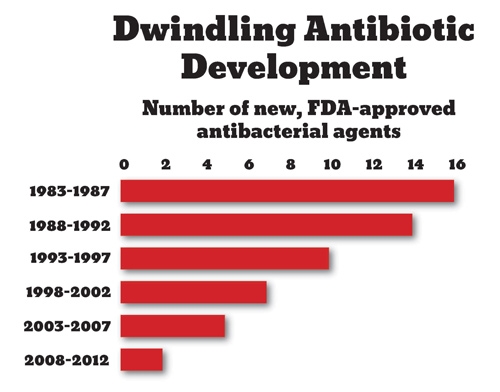Their departure would follow on the heels of Pfizer exiting that segment, leaving GlaxoSmithKline and Merck.
Why? Well, pharmaceuticals in general in crisis. I have likened it to the US steel industry in the 1970s. Critics think if they are still making money, it must be okay and they can hammer on them indefinitely. But that isn't how business works. If government-controlled academia has to take over pharmaceutical development, we are doomed.

Credit: Life Sciences Foundation
Antibiotic resistance happens, there is no escaping it. To combat that, we need new antibiotics, plain and simple. But for regulatory bodies and anti-science activists, drug companies are open season for cultural sniping.
UK Prime Minister David Cameron is setting up a task force to come up with a policy for antibiotic resistance. Meanwhile, the company with the best products on the horizon is in the UK - and trying to jettison that business.
The solution seems simple: stop treating drug companies like they are the enemy. Development is horrifically expensive, they get a short window to sell it before it goes generic, and they are criticized for trying to make their money back. If anything goes wrong despite a hundred million dollars in tests, they are sued.
That's not a return on investment anyone wants to risk.
Read more:
Can David Cameron Save AZ's Antibiotics? by David Shlaes



Comments